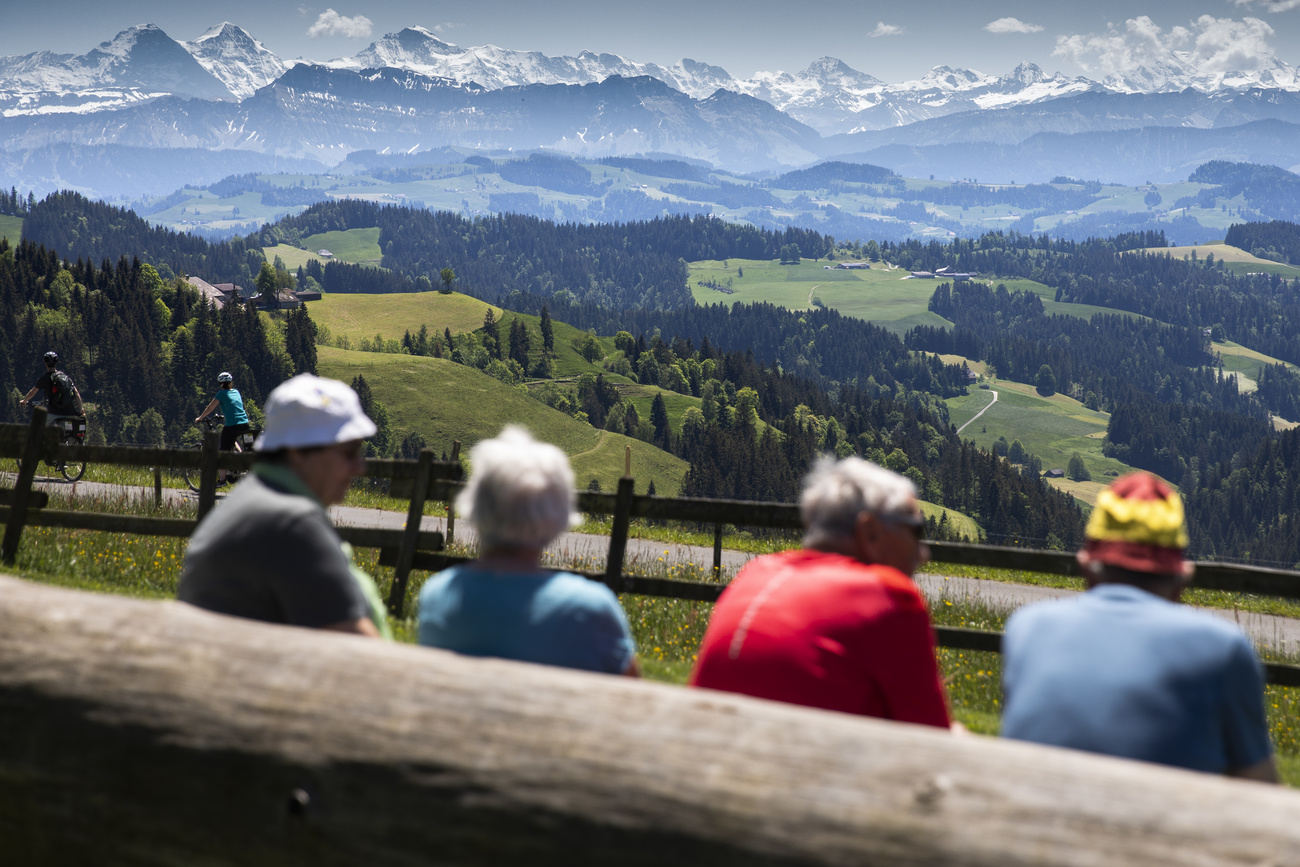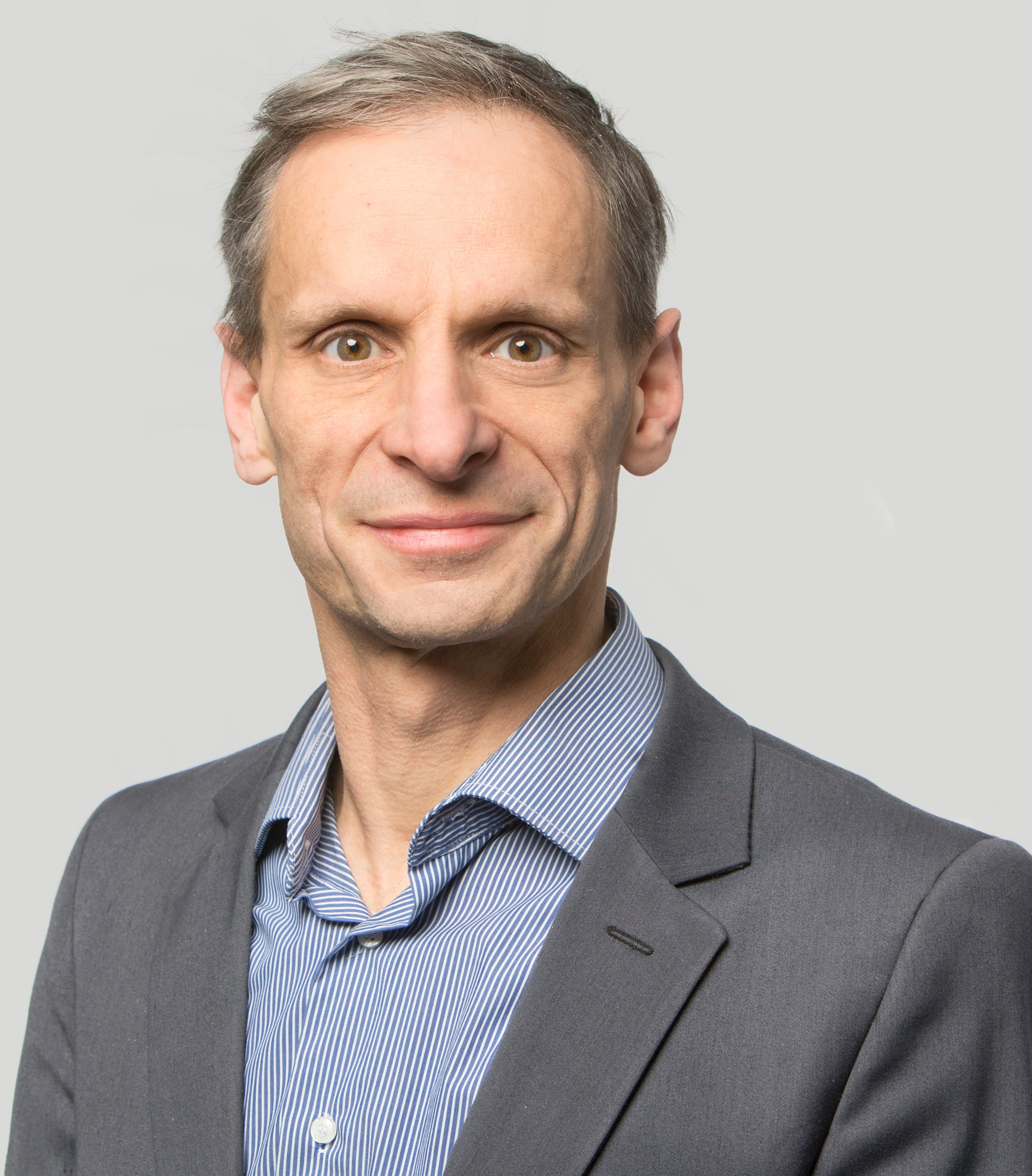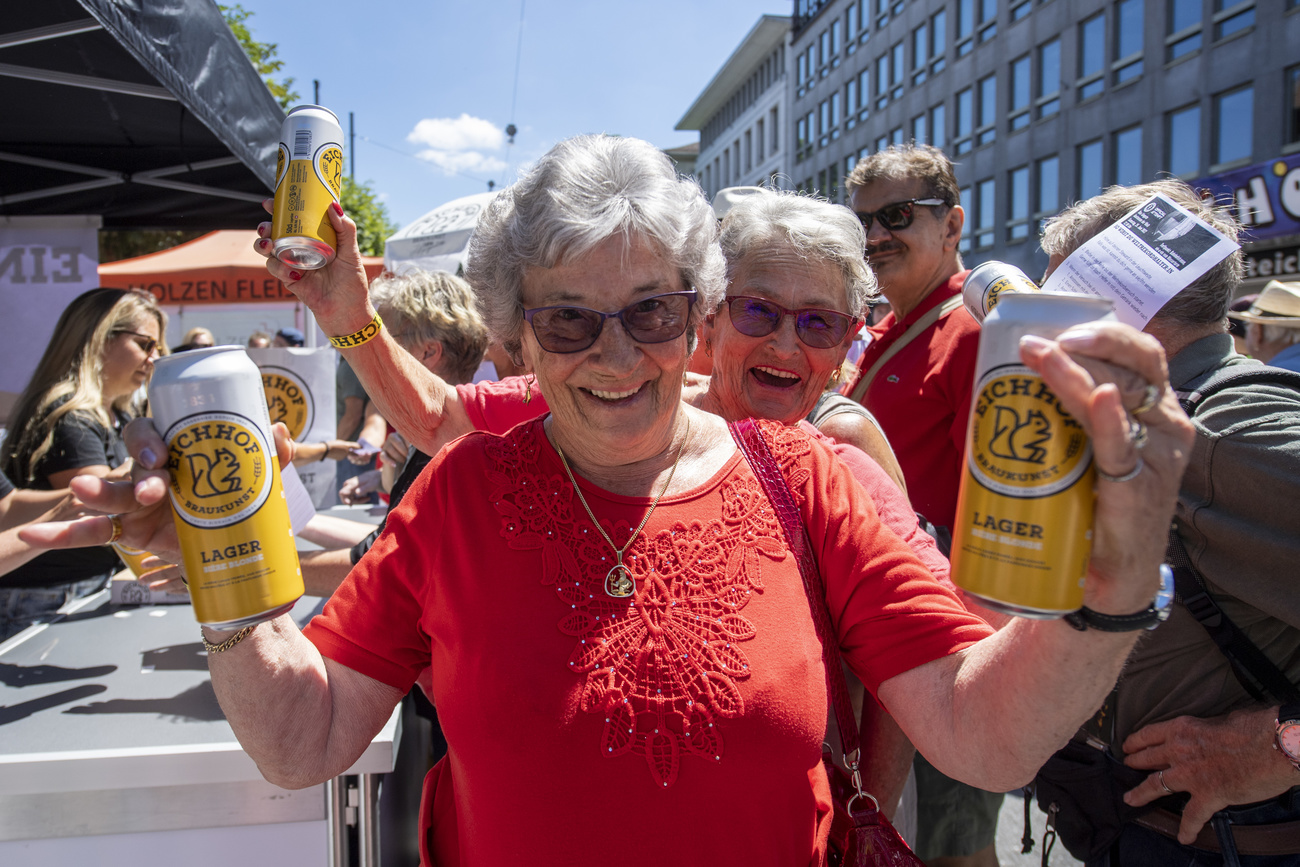Why older people in rich countries are happier than the young

Switzerland is among the happiest nations in the world, a new report shows, but life satisfaction is dropping among younger generations. SWI swissinfo.ch speaks to economics professor Mathias Binswanger about how to interpret this finding.
Switzerland is the world’s ninth-happiest country. That’s according to the World Happiness Report 2024, released this week, which looks at how people in over 140 countries evaluate their own happiness. In another recent survey, published by YouGov Switzerland, a whopping 73% of people in the Alpine country say they are “very satisfied” with their lives.
Yet behind this rosy data lies another reality. Youth happiness has dipped in the last 15 years or so, says the World Happiness Report, particularly in rich countries of Western Europe and North America. People born before 1965 are on average happier than those born since 1980. Young people are now the unhappiest age group in the United States, which dropped out of the top 20 happiest countries.
In Switzerland, the YouGov poll shows young people are struggling in particular with mental health. Surveys published after the outbreak of the Covid-19 pandemic found that up to 30% of young people say they are doing worse than before the pandemic.
Mathias Binswanger is the author of the book, The Treadmills of Happiness, and an economics lecturer at the University of Applied Sciences and Arts Northwestern Switzerland.
SWI swissinfo.ch: Switzerland consistently ranks in the top ten countries in the World Happiness rankings. What’s the secret to happiness in Switzerland?
Mathias Binswanger: The first question is, is that really true? When we visit Switzerland, we don’t have the feeling that we meet happy, smiling people in this country.
Generally, when we ask people about their happiness, they usually give answers which are biased towards the positive. That’s known as the social desirability bias, which seems to be strong in Switzerland because we have a lot. We live under nice conditions, so people say they are happy because they’re supposed to be happy.

Of course, there are also some objective reasons why Switzerland could be one of the happier countries. One is material well-being, which is very high in Switzerland. Another is security, especially the security of being able to keep your job.
The last important point is democracy. We have initiatives and referendums where people can make suggestions for changes or object to the government’s proposals. It’s also true on a local level. For example, if your neighbour wants to build something, you have the right to object. We have the possibility to exert some influence on authorities in Switzerland while in a lot of countries that’s not the case.

More
Does democracy make people happy?
SWI: For the first time, the authors of the World Happiness Report had enough data to look at how levels of happiness have changed for different age groups. Are you surprised that older people are generally happier than younger people?
MB: No, that’s something that’s been known for a long time. There is a U-shape curve that we can observe over a lifetime where people are relatively happy when they’re very young but this quickly drops. People are supposed to have a career and reach certain milestones in life, and often there’s this double burden of working and raising children. So they don’t have time to do the things they like.
Then, after the age of 50, happiness starts to increase again. People who are 65 and older are actually the happiest – in Switzerland and in most highly developed countries.
SWI: Can we expect that today’s younger generations will also follow the U-shape curve over their lifetime?
MB: That’s actually an issue being debated. The previous generation was very work oriented so retirement opens up new possibilities for them, especially now that people can live longer in relatively good health. It’s not clear if the next generation will experience the same in the future because they already have a lot of possibilities before reaching the age of retirement. They work part-time; they change jobs more frequently; and they travel more.

More
Burn-out among Swiss workers reaches all-time high
Even if the picture is not exactly the same, the tendency will probably be similar because the level of stress today is still relatively high and the decrease in stress that you see when people get older – that will probably remain in the future.
SWI: Are our ideas of what makes us happy simply different depending on our age group?
MB: When we look back at previous generations, they always had a clear objective in life. They wanted to live better than their parents did and for their children to have an even better life. So there was a common goal to increase material well-being.
But young people today have grown up with a very high level of material wealth. Why should they strive for more material wealth when they know that this is not the key factor to a happier life? The question is, what is it that will make them happy? This is rather difficult to figure out. Happiness depends on many things.
SWI: Yes, like social interactions. The World Happiness Report says that, in all world regions, the oldest people feel more socially supported and less lonely than those in the younger generations, despite having less frequent interactions with all social groups, except neighbours.
MB: Loneliness is a big problem for the older generation. The main problem for them is that social life is in danger of dying out. There was, for instance, this institution in Switzerland of the Stammtisch (regulars’ table) in most bars and restaurants in the countryside where people met everyday, but this is disappearing rapidly. These habits kept social life going.
Now we need to put a lot more effort into meeting people. And for younger people who want to be admired on social media, they feel they’re putting themselves at a disadvantage if they’re anxious to meet other people [in real life].
SWI: Happiness rankings are all well and good, but is there any value in them for policy-makers?
MB: I see a value in them because they put the emphasis on an aspect of life that ultimately is more important than GDP. In the end we all want to live a good and happy life. Governments cannot directly pursue measures to make people happy. But they can set parametres to make it easier to live a happy life. For example, how you design a city can have an impact on well-being – do people have access to green spaces where they live, and can they easily meet other people?
We should on the one hand take these rankings with a grain of salt. But just looking at material well-being gives a distorted view of reality. The important things in life cannot be measured. The rankings help to keep the discussion alive on issues that could be important for our happiness.
Edited by Balz Rigendinger. This interview has been edited for length and clarity.

In compliance with the JTI standards
More: SWI swissinfo.ch certified by the Journalism Trust Initiative




You can find an overview of ongoing debates with our journalists here. Please join us!
If you want to start a conversation about a topic raised in this article or want to report factual errors, email us at english@swissinfo.ch.